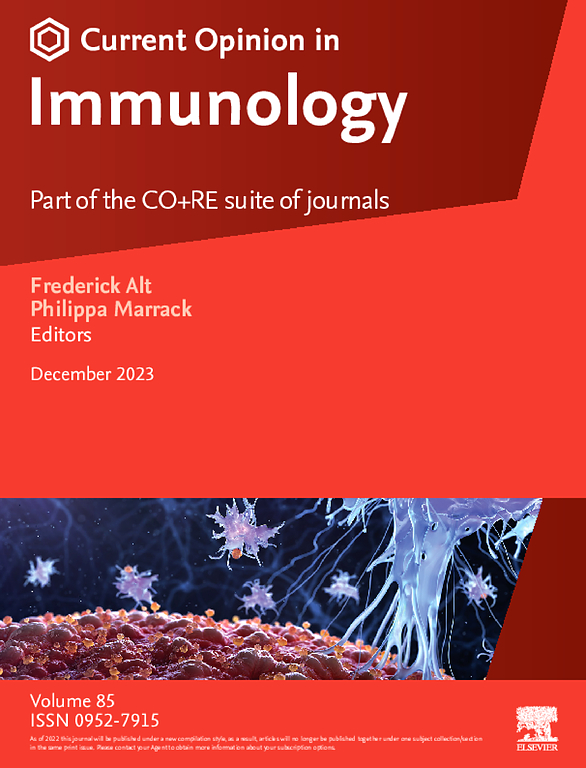Development and consequences of red blood cell autoantibodies: warm autoimmune hemolytic anemia
IF 5.8
2区 医学
Q1 IMMUNOLOGY
引用次数: 0
Abstract
Autoimmune hemolytic anemia (AIHA) is a rare disorder caused by loss of tolerance to red blood cell (RBC) antigens, leading to their destruction by autoantibodies. AIHA can occur as a primary condition or secondary to infections, malignancies, or immune-modulating therapies, such as immune checkpoint inhibitors. This review focuses on the roles of B and T cells in disease initiation and progression of warm AIHA. We discuss recent studies highlighting the importance of dysregulated CD4+ T cells in driving autoreactive B cell responses and autoantibody production and highlight a new role for purinergic signaling in contributing to T cell dysfunction. This dysfunction results in an imbalance between T regulatory cells and proinflammatory Th17 cells, further exacerbating the autoimmune response. Treatment strategies have variable success, with relapse rates of up to 50% and mortality in ∼11%. As such, we also discuss emerging therapeutic strategies, which may potentially lead to more effective and targeted treatments for this serious condition.
红细胞自身抗体的发展和后果:温热自身免疫性溶血性贫血
自身免疫性溶血性贫血(AIHA)是一种罕见的疾病,由红细胞(RBC)抗原耐受性丧失引起,导致其被自身抗体破坏。AIHA可作为原发性疾病或继发于感染、恶性肿瘤或免疫调节疗法(如免疫检查点抑制剂)。现就B细胞和T细胞在暖性AIHA发病和进展中的作用作一综述。我们讨论了最近的研究,强调了失调的CD4+ T细胞在驱动自身反应性B细胞反应和自身抗体产生中的重要性,并强调了嘌呤能信号在促进T细胞功能障碍中的新作用。这种功能障碍导致T调节细胞和促炎Th17细胞之间的不平衡,进一步加剧自身免疫反应。治疗策略有不同的成功,复发率高达50%,死亡率约为11%。因此,我们也讨论了新兴的治疗策略,这可能会导致对这种严重疾病更有效和更有针对性的治疗。
本文章由计算机程序翻译,如有差异,请以英文原文为准。
求助全文
约1分钟内获得全文
求助全文
来源期刊
CiteScore
13.30
自引率
1.40%
发文量
94
审稿时长
67 days
期刊介绍:
Current Opinion in Immunology aims to stimulate scientifically grounded, interdisciplinary, multi-scale debate and exchange of ideas. It contains polished, concise and timely reviews and opinions, with particular emphasis on those articles published in the past two years. In addition to describing recent trends, the authors are encouraged to give their subjective opinion of the topics discussed.
In Current Opinion in Immunology we help the reader by providing in a systematic manner: 1. The views of experts on current advances in their field in a clear and readable form. 2. Evaluations of the most interesting papers, annotated by experts, from the great wealth of original publications.
Current Opinion in Immunology will serve as an invaluable source of information for researchers, lecturers, teachers, professionals, policy makers and students.
Current Opinion in Immunology builds on Elsevier''s reputation for excellence in scientific publishing and long-standing commitment to communicating reproducible biomedical research targeted at improving human health. It is a companion to the new Gold Open Access journal Current Research in Immunology and is part of the Current Opinion and Research(CO+RE) suite of journals. All CO+RE journals leverage the Current Opinion legacy-of editorial excellence, high-impact, and global reach-to ensure they are a widely read resource that is integral to scientists'' workflow.

 求助内容:
求助内容: 应助结果提醒方式:
应助结果提醒方式:


